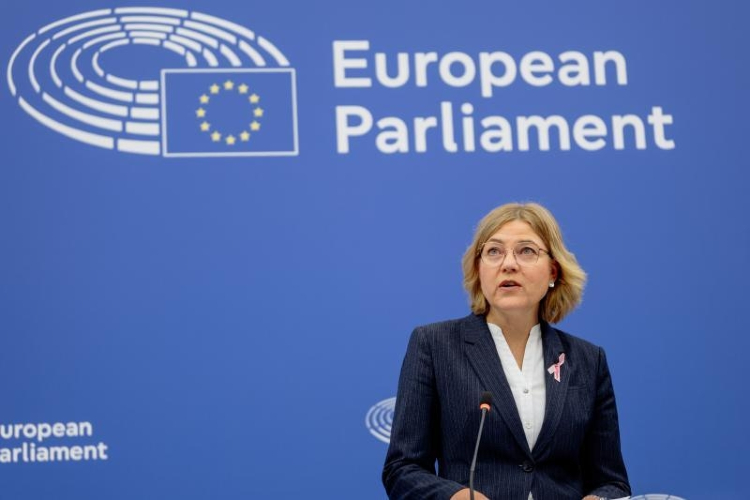Europe unveils science strategy as it looks to become an ‘AI continent’
Posted: 9 October 2025 | Dominic Tyer (European Pharmaceutical Review) | No comments yet
Establishes Resource for AI Science in Europe and eyes frontier AI models and autonomous agentic AI for pharma.


The European Commission has unveiled a series of moves to speed the uptake of artificial intelligence in science across the region as it seeks to claim a leading role in AI’s future.
The centrepiece of its new AI in Science Strategy is the Resource for AI Science in Europe, or RAISE, which will serve as a virtual European institute to pool and coordinate resources for developing AI and applying it in science.
Alongside that are plans to establish AI-powered screening centres for healthcare and support the development of advanced large-scale frontier AI models and autonomous agentic AI tailored to sectors such as manufacturing and the pharmaceutical industry.
Ursula von der Leyen, President of the European Commission, said: “I want the future of AI to be made in Europe. Because when AI is used, we can find smarter, faster, and more affordable solutions.
“AI adoption needs to be widespread, and with these strategies, we will help speed up the process. Putting AI first also means putting safety first. We will drive this ‘AI first’ mindset across all our key sectors, from robotics to healthcare, energy and automotive.”
AI in Science builds on April’s AI Continent Action Plan from the Commission and is part of its broader Apply AI Strategy, which will be supported with around €1 billion in funding and cover a number of strategic and public sectors, including healthcare, pharmaceuticals, manufacturing and construction.
The EU should lead the global race for life sciences. To get there, we must act with urgency and determination.”
The strategy also aims to support small and medium-sized enterprises (SMEs) with meeting their needs and help industries integrate AI into their operations.
Pointing to the progress it has already made, the EC noted that in six years Europe has gone from having two supercomputers in the global top 10 to having four, with work ongoing to set up at least four large-scale AI compute and data storage hubs or ‘gigafactories’.
The Commission’s Executive Vice-President for Tech Sovereignty, Security and Democracy Henna Virkkunen (pictured above) said: “Europe is well positioned to become an AI continent.
“With the Apply AI Strategy, we will help our companies and key sectors, from manufacturing to healthcare and the public sector, use AI to deliver real benefits for EU citizens, reinforce our competitiveness, and strengthen our technological sovereignty.”
A new forum, the Apply AI Alliance, will bring together stakeholders such as industry, the public sector and academia, to help coordinate action, with an AI Observatory being set up to monitor AI trends and assess sector impacts.
Another part of the Commission’s infrastructure for the technology will be its newly launched AI Act Service Desk, which aims to help ensure smooth implementation of the AI Act.
AI in science and life sciences in Europe
Looking to the scientific sector, the Commission has earmarked €58 million for pilot networks to train, retain and attract the best AI and scientific talent and there will be €600 million from its Horizon Europe programme secure dedicated access to AI gigafactories for EU researchers and startups.
Overall, the Commission has ambitions to both double Horizon Europe’s annual investments in AI to over €3 billion and double its funding for AI in science.
The next steps in the Commission’s plans will see it present later this month a Data Union Strategy, for aligning data policies with the needs of businesses, and hold an AI in Science Summit in Copenhagen on 3-4 November.
Meanwhile, the European Council, which defines the European Union’s overall political direction and priorities, has called for the EU to play a leading role in the life sciences sector, highlighting advanced therapy medicinal product (ATMP) research, clinical trials and biotechnology as areas to support.
The Council too wants to see technologies such as AI and quantum computing used more widely in life sciences
Christina Egelund, Danish Minister for Higher Education and Science, said: “[The] Council conclusions send a clear message: the EU should lead the global race for life sciences. To get there, we must act with urgency and determination with a coordinated strategy that turns ambition into action.”
The Council said it wants to see a holistic approach to research and innovation that builds on existing capacities across the entire value chain.
Mindful of the region’s declining share and reduced global impact in clinical trials, the Council wants the Commission to improve the ecosystem for multi-country and multi-centre clinical trials. As part of this it says the regulatory framework for clinical studies should be updated and an investment plan for clinical research established.
About the author
Dominic Tyer is the Editor of European Pharmaceutical Review. You can connect with him at LinkedIn or follow him on Bluesky.
Related topics
Artificial Intelligence, Clinical Trials, Drug Development, Drug Manufacturing









